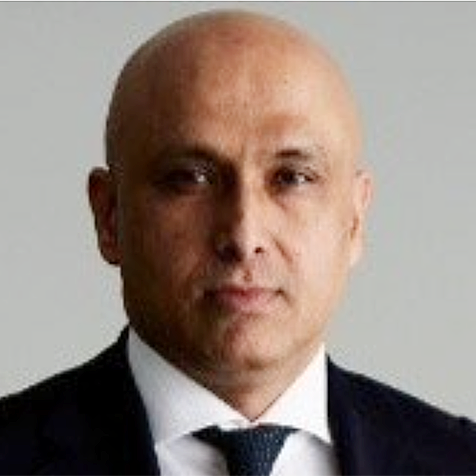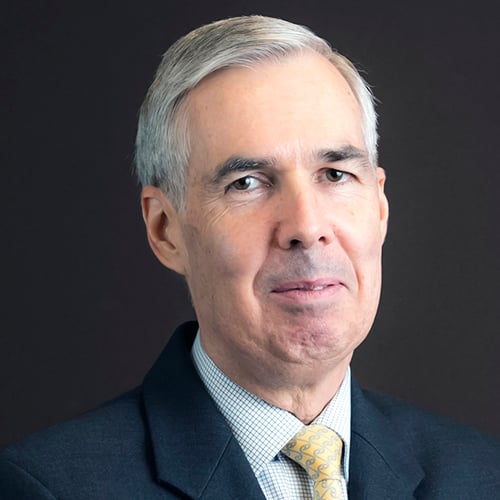 |
|
| Badlisyah: Shariah banking is all about financial inclusion |
Just as conventional finance, Islamic finance has been vulnerable to fits and starts, to severe and disquieting hiccups whenever sound economic rules are being ignored. Last year showed how intertwined its future and health is with what happens to the global economy, and for that reason, the performance of an economy will significantly affect the growth of Islamic finance, says CIMB Islamic CEO Badlisyah Abdul Ghani. He considers the Islamic finance industry lucky not to have been involved in subprime credit and not to have been heavily engaged in highly leveraged activities.
As Badlisyah recalls, Islamic borrowers faced difficulties in paying their dues in 2009, in view of the constrained economic conditions and the sharp fall in the price of oil. Liquidity dried up for most of the year in the face of global uncertainty and a slew of companies failed to raise much needed capital to fund expansion activities.
One reason why Islamic banks were not as affected as conventional Western banks, argues Badlisyah, is that they were not sophisticated enough to participate in derivatives and other leveraged transactions. “The situation could have been much worse if the Islamic banks had been as sophisticated in employing leverage as their conventional banks’ counterparts were in the previous years.”
Could a subprime crisis – in the manner seen in conventional banking in the US – happen in Islamic banking in the near future? That remains to be seen, says Badlisyah, who comments on the crisis that overcame Dubai last year when the emirate found itself sunk in a debt hole, out of which it could not afford to bail itself.
To a certain degree, he believes, the media unfairly connected the Dubai crisis to Islamic finance, when in fact what the crisis did was to equally affect the conventional. “A credit transaction is a credit transaction and we should not look at Islamic finance from a credit perspective any differently from how we see conventional finance.”
As in conventional finance, he says, Islamic finance relies on the creditworthiness of an issuer or a client to decide where liquidity is channelled and directed. “Whatever structure is in place – whether it is Islamic or conventional – credit is still credit and it needs to be paid.”
Badlisyah contends that whichever financial or fiscal problems that the GCC countries have been facing of late do not have a significant bearing on the stability of Islamic finance in this part of the world.
Considering the clear restrictions placed on the use of derivatives on Islamic transactions, Badlisyah does not believe that the ability of Islamic banks to manage their risk has been constrained or compromised.
“For many years, we have had in Malaysia an effective Islamic derivatives market. There is no point in engaging in a business when you cannot manage your risk effectively. This is why we have the equivalent of interest rate swaps and cross-currency swaps. The only thing that is not allowed are credit default swaps.”
Balanced regulations with teeth
Badlisyah argues that everything that exists in Western capital markets that is of genuine value to banks and corporates has already been incorporated in Malaysia under the Islamic derivatives regime. This, he argues, is the reason why Malaysian Islamic banks have been successful in managing the volatility and fluctuations that have buffeted the industry in recent years. The ban on credit default swaps is completely justified, he feels, and will likely be for keeps.
The existing regulatory and legal framework for the industry in markets outside Malaysia – where Islamic finance is still growing – is unfortunately still unclear or has not yet evolved to their full form, which according to Badlisyah explains why strong, negative reactions immediately arise when derivatives are mentioned. He admits that the question remains whether the Islamic regulatory framework is evolving as it should, in tandem with the rapid development of the industry in terms of scale and complexity.
Interviews conducted by The Asset in recent months with different Islamic banks in Malaysia suggest that the regulations need more teeth to ensure that abuses are immediately detected and corrected and that Islamic banks continue to be transparent in the way they conduct their business. The problem is exacerbated by the dearth of talent as the industry expands. Would the drive of Western regulators to impose stricter market discipline and more transparency affect the
Malaysian establishment?
Badlisyah does not believe that it is a question of bringing in more regulations to ensure that the industry avoids the trauma of Western finance, although he guesses that more regulations would not be necessarily bad for the market. “It is, as always, about injecting a balance to everything we do. The rules ought not necessarily to restrain. Rather they should help enhance the market, while protecting consumers. It is a classic dilemma that every regulator faces. Rules are being examined, and the thought process is concentrating on what exactly rules need to do.” Regulators, he adds, have learnt a great deal from the Asian financial crisis of 1997-1998 and the other global shocks that have happened since then.
From Badlisyah’s point of view, that Malaysian Islamic banks emerged from the global financial crisis relatively stable and unscathed is due to the regulatory framework that was put in place. “Malaysian banks found themselves totally isolated from the crisis because they had not been allowed to invest as much overseas after the Asian financial crisis.”
Catering to different flavours
“We must not kid ourselves. The market will change itself as a result of the global financial crisis, there will be a different regulatory framework that will be introduced in the market, not intended to weaken the market but to enhance it both for the major industry players and the consumers. Yet, once again, there will be a lot of fear and anticipation about how business will be affected while people are sorting out what the new regulatory framework will look like.”
It is natural to expect that even worse forms of irrationality could come back into global markets. “It is always good to be on the safe side and have built the necessary regulations that avoid the irrational exuberance that characterized most markets. In Malaysia, our Islamic banking business and market is fully regulated by two regulatory bodies. We have Islamic product development guidelines issued by the central banks some time ago, as well as a host of products that have been approved by the central bank of Malaysia. These are usable by players in other jurisdictions.”
Badlisyah says the standardization of Islamic banking products was facilitated by the guidelines that allow for all Shariah interpretations and applications. “In other words, I can have a full financing product with essentially a structure based on the Hambali school of law and Shariah to cater to my customer segment that follows the Hambali school of law and I can have another structure for both financing that caters to the Hanaffi school of law. But I still account for it as a home financing programme. One key is to support the government initiative for financial inclusion.”
Badlisyah says Shariah banking is all about financial inclusion and that is the reason why there are different Shariah schools of thoughts to facilitate and enhance the ability to have an inclusive financial market. This explains why the focus in Malaysia, is not so much about what structure or product one is going to deliver into the market . “Our thinking is more of what else can we do, how else can we enhance financial inclusion to make sure that everyone’s financial needs are met.”
Not worried about cannibalization
Does this bring Islamic finance on an irreversible path, a different crux in the road from that which conventional finance has trodden? “It depends,” explains Badlisyah.
“If you are a large financial group in Malaysia like CIMB, then it is still a predominantly conventional financial group that has Islamic banking operations. It depends how you structure the business. We exist as a financial service provider to meet the needs of our clients. We appreciate that client needs can be in conventional banking or in Islamic banking and it is our responsibility to meet those needs. Our priority is to make sure that we provide them with a choice. We provide them with value and recommend the best value. We offer a dual banking leverage model where we leverage the same results and infrastructure to do Islamic banking.
"Considering the extra attention devoted to Islamic finance, is there a fear that the conventional business may be cannibalized? Badlisyah says cannibalization only exists when conventional bankers are of the view that Islamic banking is not their business.
“For a corporate banker providing corporate loans to customers,” Badlisyah points out, “the key performance indicator (KPI) is to sell both conventional and Islamic loans. When a customer chooses Islamic, we are still focussed on the growth of assets. Granted, there is the natural trend of customers increasingly demanding Islamic products, but this does not arise from a fear that conventional finance is weakening. In fact, we have yet to see the peculiar trend of conventional funds moving to Islamic banks or deposits. It is certainly not happening in Malaysia since conventional and Islamic banking are both stable and provide enough for the needs of their customers. In other words, we are not worried about cannibalization.”
Customers opt for value
The debt market in Malaysia is now 60% Islamic and in the stock exchange 80% of the stocks are Shariah compliant or are being managed in a Shariah compliant manner thus attracting wider investor base. The takaful sector in Malaysia is still relatively small compared to conventional insurance. “It is roughly just about 7%. But if you really scrutinize the specific business lines, for life for example, it is about 20%.”
Badlisyah feels it is crucial to communicate to the customer the value that each product offers. “We came up with a product with a fixed-investment account and it is the only Islamic investment account in the country where return is fixed and given upfront. It is a three-month deposit and the return is given on day one. The conventional market did not have that kind of product and we took the market by storm when it was launched. Eventually, a competing conventional bank replicated the product in the conventional market. It shows that Islamic finance can lead in innovation to meet customer needs.”
“The most important thing I have realized as an Islamic banker,” confides Badlisyah, “is the paramount importance of providing high-quality service to customers.
There will be countless themes and variations of products across all markets, so what matters is how you differentiate yourself in terms of delivering the products in the most efficient and effective manner. At the end of the day, what matters to people is the value proposition you offer. If something is good and gives a better return, people will go for it. So if conventional finance can deliver the value, then there will be more customers going there.”
Still, there are those who do not have any appetite for the conventional at all. There is a substantial segment within the market – the true blue Islamic finance users – that will never use or want to touch conventional finance. “This is the reason why CIMB decided to have both.”
How does he rate CIMB’s success in attracting a non-Malay and non-Islamic constituency to opt for Islamic finance? “I am glad to say that we have been rather successful in attracting all types of customers, including non-Muslims and non-Malays,” Badlisyah says. “Our current customers constitute a good balance between Muslims and non-Muslims.”









